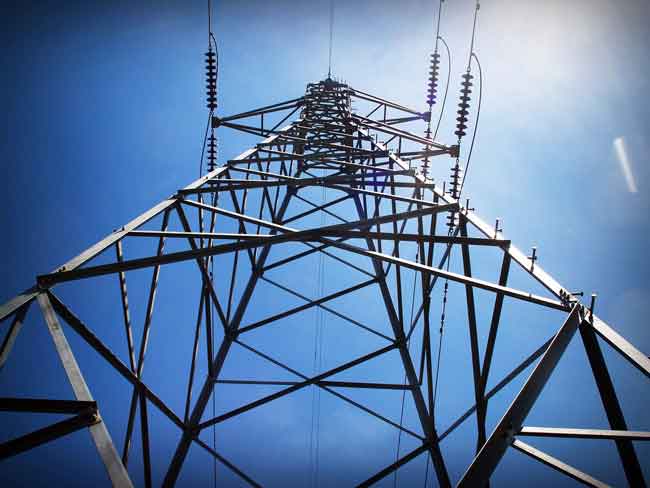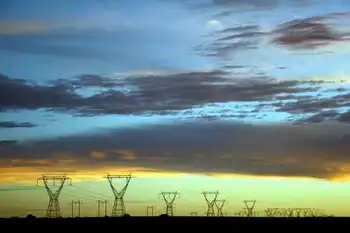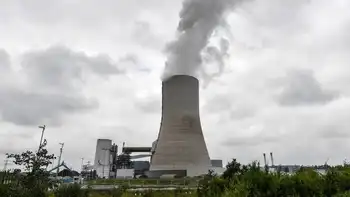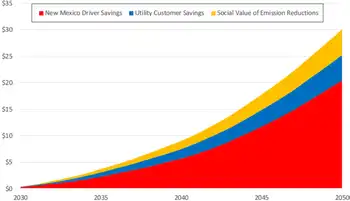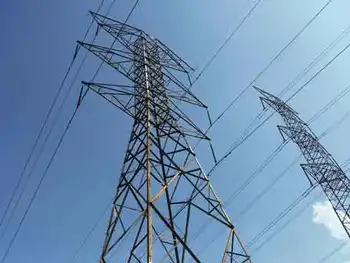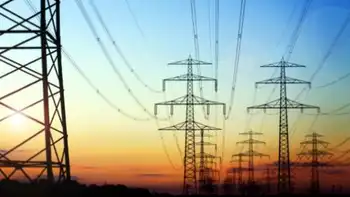DEP urges reviewers to ditch net metering rules
By TRIBUNE
CSA Z463 Electrical Maintenance
Our customized live online or in‑person group training can be delivered to your staff at your location.

- Live Online
- 6 hours Instructor-led
- Group Training Available
DEP argues that by restricting financial incentives, the proposed limits would hinder a successful policy that has driven clean energy development at a time when the sector is otherwise stagnating in the commonwealth. Those comments put the department at odds with another state agency, the Pennsylvania Public Utility Commission, that drafted the new limits and voted 3-2 in February to adopt them. The Independent Regulatory Review Commission is scheduled to vote Thursday on whether the rules are in the public interest.
The PUC says it is acting out of concern that energy merchants can masquerade as the law's intended beneficiaries -- owners of homes, businesses or public buildings that use renewable energy for their own electricity needs and then get reimbursed by the utility at the end of the year for any extra they send back to the grid. The practice is known as net metering.
Pennsylvania's 2004 Alternative Energy Portfolio Standards Act limited the capacity size of alternative energy systems that qualify for net-metering payments to 50 kilowatts for residential generators and 3 megawatts for commercial generators.
Now, the PUC is proposing an additional cap, defining eligible systems as those designed to produce no more than 200 percent of the electricity used on site in a year. The PUC says the limits would apply to new or expanding systems, not existing ones.
Without such a cap, the PUC says, merchant-scale alternative energy suppliers could take advantage of the law's generous payment standards that require utilities to reimburse customers for their extra electricity at full retail prices. Those costs would ultimately translate to higher rates for other electricity customers.
"The AEPS Act was not intended to provide a vehicle by which merchant generators can collect retail prices for a wholesale product, financed by excess charges on utility ratepayers," the PUC wrote in documents justifying the rules.
The diverse collection of alternative energy adopters that oppose the rule change -- including solar companies, landfills, the Northampton County art supply company Crayola, a Lycoming County school district and the Allenwood federal prison complex -- say the PUC is overstepping its authority to impose a standard that goes against the purpose of the law.
The Pennsylvania Waste Industries Association, which promotes the use of landfill gas for energy, charged that the PUC has failed to explain how its proposed rules comply with the legislature's clear intent under the 2004 law to encourage the development of distributed sources of clean energy.
"Had the PUC attempted to offer an explanation of how severely limiting compensation for an activity would encourage that activity's growth," the trade group wrote, "we suspect it would have sounded similar to the infamous quote regarding the bombing of the Vietnamese town B?n Tre, 'It became necessary to destroy the town to save it.' "
In a letter signed by Secretary John Quigley, DEP said it appreciates the PUC's concern that opportunists could game the system but the limits set by the legislature already work to prevent misuse. Any change to the cap would have to come from the legislature, he wrote, and "Pennsylvania is very far from the threshold at which the legislature might need to consider action."
"Concerns about net-metering customers imposing significant costs on other customers are entirely illusory," Mr. Quigley wrote, citing figures from the U.S. Energy Information Administration that showed net-metered customers in Pennsylvania sold 288 megawatt hours of electricity to the grid in 2014. The state's total electric generation topped 220 million megawatt hours that year.
DEP set its comments in the context of the broader condition of the alternative energy sector in Pennsylvania. In 2015, fewer than 5 megawatts of new solar capacity were installed in the state, enough to power about 800 homes, compared to 170 megawatts of solar added last year in New York, Mr. Quigley wrote. No utility-scale wind was added in Pennsylvania in 2015 and there are no significant wind projects under construction.
Earlier versions of the rules also drew objections from DEP and the Department of Agriculture during the Corbett administration, but those concerns focused on provisions that could have discouraged the use of methane digesters to manage manure and generate energy at farms.
he PUC later created an exemption so the 200 percent cap does not apply to those systems if they are part of a farm's plan for managing nutrient runoff or limiting pollution in the Chesapeake Bay watershed. The Independent Regulatory Review Commission is scheduled to vote on the net-metering rules during its next public meeting at 10 a.m. on Thursday in Harrisburg.
In one of the last steps before state regulations can be finalized and implemented, the five-member review commission evaluates rules for their reasonableness, financial impact and consistency with the laws they implement, as well as the rule-making agency's authority to make the changes it proposes.





